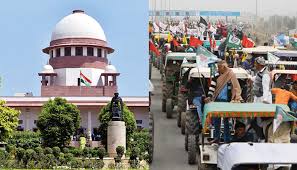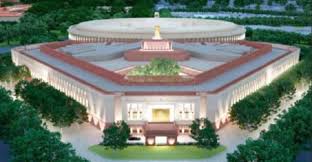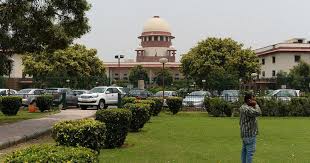Feature
Supreme Court dismisses plea, Yakub to hang July 30

New Delhi/Mumbai: The Supreme Court on Tuesday dismissed a curative plea filed by the March 1993 Mumbai serial blasts convict Yakub A.R. Memon, who will go to the gallows on July 30.
An apex court bench comprising Chief Justice H.L. Dattu, Justice T.S. Thakur and Justice A.R. Dave rejected Memon’s plea challenging an earlier verdict upholding the death sentence.
As per indications, the Maharashtra government has cleared Memon’s execution for July 30 in the Nagpur Central Jail where he is lodged.
Memon — who will become the first and only accused in this 23-year old case to hang — had pleaded that he was a patient of schizophrenia since 1996, had spent nearly 20 years behind bars, and he could not be awarded both life sentence and death sentence for the same offence.
He sought a review of the apex court verdict of March 21, 2013 upholding the death penalty for the 13 precision bomb blasts in Mumbai which killed 257 people and injured 712.
He was among the 100 convicted — of the 123 accused in the case — besides many others listed as ‘wanted absconders’, including his brother Ibrahim alias Tiger Memon and mafia don Dawood Ibrahim Kaskar.
Yakub Memon and 11 others were slapped with the death penalty, 20 got life terms and another 68, including Bollywood actor Sanjay Dutt, varying terms in jail.
Special TADA Court judge P.D. Kode, who conducted the trial and sentenced Memon and 11 others to death, termed the Supreme Court verdict “a solace after 22 years and a victory for those who believe in the rule of the law.
“The judgment shows that indulging in criminal activities is not a profitable business,” Kode said in Mumbai.
Special Public Prosecutor Ujjwal Nikam, who directed the prosecution trial, said: “This is a historic verdict… The SC has distinguished the role between the conspirators and the planters and that they deserve bigger punishment.”
The lawyer said: “The death penalty is an effective remedy under the law. In this case it would act as a deterrent.”
When the then Special Judge Kode pronounced the death penalty on Memon on July 27, 2007, he had screamed like a wild animal, stunning the packed courtroom.
Once named the Best Chartered Account by his Memon community, Yakub Memon, 53, handled the finances for his brother, Tiger Memon, in Mumbai.
Named accused No. 1, Menom played a key role in the conspiracy, financing the operation through co-accused Mulchand Shah and his firms, arranging air tickets to fly to Dubai and then Pakistan for six other accused.
He was also found guilty of buying vehicles used in the blasts and possessing arms and ammunitions.
The entire family, including Yakub Memon, quietly fled Mumbai shortly before the blasts.
Kode said the March 1993 terror attack was the biggest in Indian history, targeting 13 locations simultaneously and blowing them up within a couple of hours.
The third of six sons of the late Abdul Razzaq Memon, Yakub Memon turned out to be most educated in the Memon family. He completed his schooling in an English medium school and later acquired his B.Com degree and qualified as a Chartered Accountant in 1990.
He diversified into exports and formed a company, Tejrath International, to export meat and meat products to the Gulf and the Middle East.
In a short period, Memon became a financial success and invested in six flats in the Al-Hussaini Building in Mahim, a hub of the Muslim community, close to the famous Mahim Dargah, in the island city.
Entertainment
Meghalaya Reserves Legalized Gambling and Sports Betting for Tourists

The State Scores Extra High on Gaming-Friendly Industry Index
Meghalaya scored 92.85 out of 100 possible points in a Gaming Industry Index and proved to be India’s most gaming-friendly state following its recent profound legislation changes over the field allowing land-based and online gaming, including games of chance, under a licensing regime.
The index by the UK India Business Council (UKIBC) uses a scale of 0 to 100 to measure the level of legalisation on gambling and betting achieved by a state based on the scores over a set of seven different games – lottery, horse racing, betting on sports, poker, rummy, casino and fantasy sports
Starting from February last year, Meghalaya became the third state in India’s northeast to legalise gambling and betting after Sikkim and Nagaland. After consultations with the UKIBC, the state proceeded with the adoption of the Meghalaya Regulation of Gaming Act, 2021 and the nullification of the Meghalaya Prevention of Gambling Act, 1970. Subsequently in December, the Meghalaya Regulation of Gaming Rules, 2021 were notified and came into force.
All for the Tourists
The move to legalise and license various forms of offline and online betting and gambling in Meghalaya is aimed at boosting tourism and creating jobs, and altogether raising taxation revenues for the northeastern state. At the same time, the opportunities to bet and gamble legally will be reserved only for tourists and visitors.
“We came out with a Gaming Act and subsequently framed the Regulation of Gaming Rules, 2021. The government will accordingly issue licenses to operate games of skill and chance, both online and offline,” said James P. K. Sangma, Meghalaya State Law and Taxation Minister speaking in the capital city of Shillong. “But the legalized gambling and gaming will only be for tourists and not residents of Meghalaya,” he continued.
To be allowed to play, tourists and people visiting the state for work or business purposes will have to prove their non-resident status by presenting appropriate documents, in a process similar to a bank KYC (Know Your Customer) procedure.
Meghalaya Reaches Out to a Vast Market
With 140 millions of people in India estimated to bet regularly on sports, and a total of 370 million desi bettors around prominent sporting events, as per data from one of the latest reports by Esse N Videri, Meghalaya is set to reach out and take a piece of a vast market.
Estimates on the financial value of India’s sports betting market, combined across all types of offline channels and online sports and cricket predictions and betting platforms, speak about amounts between $130 and $150 billion (roughly between ₹9.7 and ₹11.5 lakh crore).
Andhra Pradesh, Telangana and Delhi are shown to deliver the highest number of bettors and Meghalaya can count on substantial tourists flow from their betting circles. The sports betting communities of Karnataka, Maharashtra, Uttar Pradesh and Haryana are also not to be underestimated.
Among the sports, cricket is most popular, registering 68 percent of the total bet count analyzed by Esse N Videri. Football takes second position with 11 percent of the bets, followed by betting on FIFA at 7 percent and on eCricket at 5 percent. The last position in the Top 5 of popular sports for betting in India is taken by tennis with 3 percent of the bet count.
Local Citizens will Still have Their Teer Betting
Meghalaya residents will still be permitted to participate in teer betting over arrow-shooting results. Teer is a traditional method of gambling, somewhat similar to a lottery draw, and held under the rules of the Meghalaya Regulation of the Game of Arrow Shooting and the Sale of Teer Tickets Act, 2018.
Teer includes bettors wagering on the number of arrows that reach the target which is placed about 50 meters away from a team of 20 archers positioned in a semicircle.
The archers shoot volleys of arrows at the target for ten minutes, and players place their bets choosing a number between 0 and 99 trying to guess the last two digits of the number of arrows that successfully pierce the target.
If, for example, the number of hits is 256, anyone who has bet on 56 wins an amount eight times bigger than their wager.





















